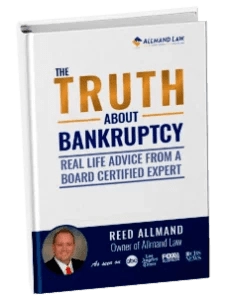
Debtor Caught In “Fraud” Vortex Saved By Appeals
There’s a very interesting bankruptcy case Grueneich, James B.; In re (Grueneich v. Doeling, Trustee) where a debtor was accused of “gaming the system” and faced his exemptions being denied. Fortunately, the debtor won on an appeal; but the case is a warning to all debtor’s filing bankruptcy.
The details of the case:
The Chapter 7 debtor scheduled several par¬cels of real estate and claimed two of them as his exempt homestead, even though neither one was his home. The parcels, valued at $900 and $4,266, were claimed as fully exempt under the federal homestead exemption. In addition, the debtor owned stock in various privately held corpora¬tions. He said the stock was worthless and did not claim it as exempt.
This is where the case gets muddled and the bankruptcy court get suspicious.
The debtor eventually amended his bankruptcy schedules to claim the stock as exempt under the wild card exemption; but it was AFTER the deadline for objecting to the debtor’s exemptions had passed. The debtor claimed that he filed an exemption on the stock because the trustee had received a $2500 offer for it. Well, by the time the bankruptcy trustee objected to the debtor’s exemptions, the deadline had passed. The bankruptcy trustee claimed that the debtor was “gaming the system” and moved to deny the exemptions anyway. The debtor appealed and the bankruptcy court disagreed with the trustee saying that the challenge to the homestead exemption was “time-barred” and that they did not believe that the debtor was “gaming the system.”
This is what they had to say:
… the Supreme Court said that the timeliness of exemption objections cannot be overlooked based on bad faith. In addition, the panel found no evidence that the homesteads were claimed in bad faith. The objection to the stock exemption was timely and based on bad faith. The panel, however, found that the trustee of¬fered no evidence that the debtor misrepresented the value of his stock. Just because the trustee was offered $2,500 for the stock did not mean it wasn’t worthless. And there was no evidence that the debtor intended to mislead anyone by saying it was. Finally, the panel questioned how the debtor was gaming the system when he could have claimed the real estate as exempt under the wild card exemption and still had more than $6,000 available to exempt the stock.
Debtors who are considering bankruptcy must discuss their exemptions with their bankruptcy attorney before they file for bankruptcy. When you file bankruptcy and are not clear on your exemption strategy you are putting your bankruptcy case in jeopardy.






